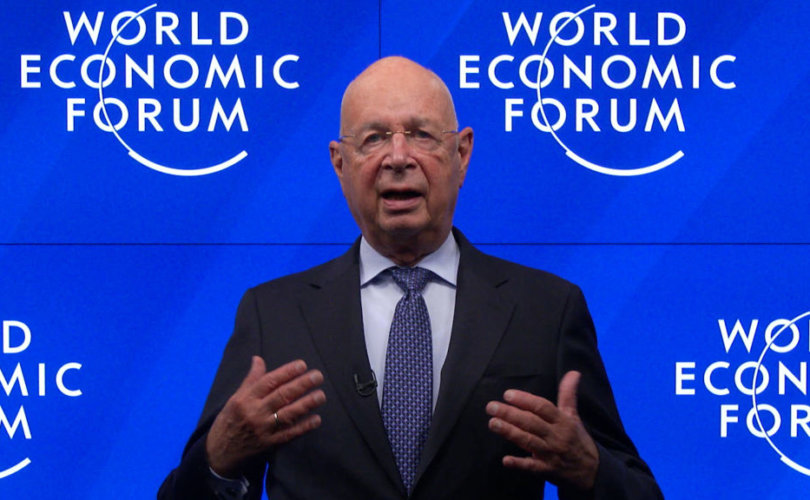(LifeSiteNews) – In line with its “Great Reset” agenda goal of ensuring ordinary people “own nothing,” the World Economic Forum is now advocating for the abolition of private vehicle ownership.
“We need a clean energy revolution, and we need it now,” opens the WEF’s July 18 article titled “3 circular economy approaches to reduce demand for critical metals.”
“But this transition from fossil fuels to renewables will need large supplies of critical metals such as cobalt, lithium, nickel, to name a few. Shortages of these critical minerals could raise the costs of clean energy technologies,” continued the globalist group.
Continuing, the WEF explains that while mining more “virgin material” is one “obvious route,” doing so could produce “unintended consequences,” and therefore “it is time to look beyond” the current solution and consider “[t]hese three mindset changes” that can “help reduce demand for critical metals.”
The first of the mindset changes is encouraging people to “Go from owning to using.” The WEF claims that because most vehicles and other items are left sitting idle more than they are used, “More sharing can reduce ownership of idle equipment and thus material usage.”
“To enable a broader transition from ownership to usership, the way we design things and systems need to change too,” explains the group, mentioning that one possibility is that things such as cars could utilize “user profiles” that “create a distinction for work and personal use on the same device” allowing for the “number of devices per person” to be reduced.
“A design process that focuses on fulfilling the underlying need instead of designing for product purchasing is fundamental to this transition. This is the mindset needed to redesign cities to reduce private vehicles and other usages,” adds the organization.
READ: Is our current inflation crisis a key part of the Great Reset agenda?
The other two ideas the WEF has for the so-called “circular economy” are far less revolutionary and include building things with a “preference for longevity” and repurposing items that no longer serve their intended use but could be useful in another setting.
Even still, in the concluding paragraphs of the article the WEF hints at its desire to remove autonomy from the population in favor of advancing its own worldview, referencing a 2022 World Economic Forum white paper which encourages those in the mining industry to ask the question, “do we need these minerals?” before embarking on projects.
“This transition to a fully circular model is now more urgent than ever. If we are to move forward, we need to reconsider at a systemic level how much we use, as well as how we can reduce usage,” it states. “Unless we can dramatically reduce current metal usage, the debate and tension on finding new mines will not go away.”
As extensively reported by LifeSiteNews, the WEF’s Great Reset agenda, which says that by the year 2030 “You’ll own nothing and you’ll be happy,” is a radical socialist plan designed by global elites that “seeks to ‘push the reset button’ on the global economy” and establish a radical New World Order that seems to closely emulate many aspects of the Chinese Social Credit System.
In fact, WEF chairman Klaus Schwab has consistently praised Communist Chinese President XI Jinping for his country’s so-called “significant social and economic achievements,” while referring to China has a force of “inclusion” in the world despite credible evidence that Jinping’s regime is engaged in genocide, organ-harvesting, and other inhumane practices to further increase the power of what critics call the “world’s first truly totalitarian state.”

